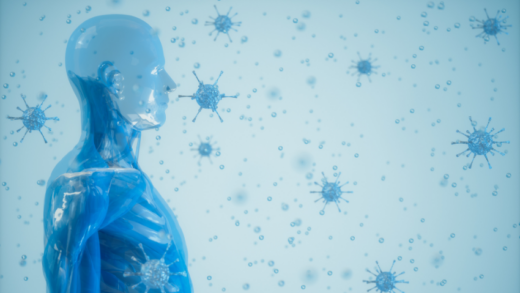Schizophrenia is a severe mental disorder that affects approximately 1% of the world’s population. People with schizophrenia often experience a range of symptoms, including delusions, hallucinations, disorganized speech, and disorganized behavior. These symptoms can significantly impact a person’s ability to think, feel, and behave normally, leading to a decrease in their quality of life. However, with proper treatment and support, people with schizophrenia can manage their symptoms and lead fulfilling lives. In this article, we will explore the causes, symptoms, and treatments of schizophrenia in detail.
Symptoms of Schizophrenia:
The symptoms of schizophrenia can be categorized into three groups: positive symptoms, negative symptoms, and cognitive symptoms. Positive symptoms refer to the presence of abnormal experiences, such as hallucinations and delusions. Negative symptoms refer to the absence of normal experiences, such as lack of motivation and flat affect. Cognitive symptoms refer to difficulties with thinking, memory, and attention.
Some of the most common symptoms of schizophrenia include:
Positive symptoms:
- Delusions: false beliefs that are not based on reality
- Hallucinations: seeing or hearing things that aren’t there
- Disordered thinking and speech: difficulty organizing thoughts and expressing them coherently
Negative symptoms:
- Lack of motivation and interest in activities
- Social withdrawal and isolation
- Flat affect: reduced emotional expression
Cognitive symptoms:
- Difficulty with memory and attention
- Poor decision-making skills
- Problems with executive function
Causes of Schizophrenia:
The exact causes of schizophrenia are still unknown, but research suggests that a combination of genetic, environmental, and brain chemistry factors may contribute to the development of the disorder.
Some of the most significant risk factors for schizophrenia include:
- Genetics: people with a family history of schizophrenia are more likely to develop the disorder.
- Brain chemistry: imbalances in certain neurotransmitters, such as dopamine, may play a role in the development of schizophrenia.
- Environmental factors: exposure to viral infections or maternal malnutrition during pregnancy may increase the risk of developing schizophrenia.
Treatments for Schizophrenia:
Schizophrenia is a treatable condition, but there is no one-size-fits-all approach to treatment. The most effective treatment plan will vary depending on the individual’s symptoms, medical history, and preferences.

Some of the most common treatments for schizophrenia include:
- Medications: antipsychotic medications can help reduce the severity of symptoms.
- Therapy: psychotherapy, such as cognitive-behavioral therapy, can help people with schizophrenia manage their symptoms and improve their quality of life.
- Supportive services: social support, vocational rehabilitation, and housing assistance can help people with schizophrenia live independently and maintain their recovery.
FAQs:
What is the difference between schizophrenia and multiple personality disorder?
Schizophrenia and multiple personality disorder (now called dissociative identity disorder) are two separate mental disorders. Schizophrenia is characterized by a range of symptoms, such as delusions and hallucinations, while dissociative identity disorder involves the presence of two or more distinct personality states.
Is schizophrenia a lifelong condition?
Schizophrenia is a lifelong condition, but with proper treatment, many people with the disorder can manage their symptoms and lead fulfilling lives.
Can schizophrenia be cured?
There is no known cure for schizophrenia, but with proper treatment and support, many people with the disorder can manage their symptoms and live independently.
Can people with schizophrenia work?
Yes, many people with schizophrenia are able to work with proper treatment and support. Vocational rehabilitation programs can help people with schizophrenia develop the skills they need to work and maintain employment.
Can schizophrenia be prevented?
Currently, there is no known way to prevent schizophrenia. However, early detection and treatment can help improve outcomes for people with the disorder.
Schizophrenia is a complex and often misunderstood mental disorder that can have a significant impact on a person’s life. However, with proper treatment and support, people with schizophrenia can manage their symptoms and lead fulfilling lives. It is important to remember that people with schizophrenia are not defined by their diagnosis, and they deserve compassion, understanding, and support. By educating ourselves about the causes, symptoms, and treatments of schizophrenia, we can help reduce the stigma surrounding this disorder and improve outcomes for people living with schizophrenia.























